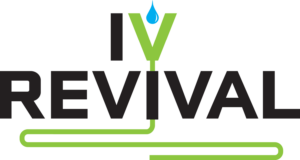Taking care of your heart is one of the most important things you can do — at any stage of your life. Today, we at IV Revival wanted to go over some vitamins and supplements to show your heart a little love.
Heart disease is the leading cause of death in the United States. It is responsible for almost one in four American deaths. Additionally, a 2017 study found that 26% of female deaths and 19% of male deaths were related to heart disease.
So show your heart a little love and care with these vitamins that are good for your heart.
Top-Reviewed Heart Health Supplements
Even if you eat right and exercise, you could still be at risk for chronic heart disease. Let’s take a look at some of the most popular heart support supplements and vitamins.
Essential Fatty Acids
Essential Fatty Acids are fats that are essential for proper functioning, yet the body cannot produce them on its own. Omega-3 fatty acids are commonly suggested to support proper heart health.
In fact, several studies have shown that individuals who consumed fatty fish a few times per week had almost one-half the risk of death from coronary heart disease and almost one-third the risk of death from a heart attack in comparison with those who consumed no fish.
Omega-3 Fatty Acids aren’t that easy to consume either, especially for those with a seafood allergy or a general aversion to fishy foods. While alpha-linoleic acid (ALA) can be found in flax seeds and soybeans, Eicosapentaenoic Acid (EPA) and Docosahexaenoic Acid (DHA) can only be found in fish and krill.
Folate
Folate, also known as folic acid and vitamin B9, can reduce a person’s risk of heart disease and stroke by about 20% if taken daily. Folic acid has been shown to effectively lower levels of an amino acid in the blood called homocysteine. This is crucial because higher than normal levels of homocysteine increase your risk for heart disease and can lead to dangerous blood clots and hardening of the arteries.
Due to its increased absorption and utilization, folate is the preferred form, however. When comparing folic acid and folate, some studies suggest that folic acid may not be as effective. It is uncommon to be deficient in folate, though women who are pregnant or breastfeeding are at higher risk.
Folate can be found in green leafy vegetables, wheat products, and citrus fruits.
Magnesium
As an electrolyte, magnesium plays a role in hundreds of chemical reactions in the body. In addition to skeletal and muscular health, magnesium may help support a regular heartbeat and manage blood pressure levels.
The 12-year ARIC study found that the rate of sudden cardiac death among participants with the lowest magnesium levels in the blood was 2.41 per 1,000 people per year, compared to those with high levels at .98 per 1,000.
Magnesium supplements come in various forms. When it comes to your heart, promising early research suggests that magnesium taurate, glycinate, and orotate can promote heart health and lower blood pressure.
You can take magnesium in a variety of ways, including orally through food or supplements. IV vitamin therapy is becoming increasingly popular for getting your much-needed dose of magnesium too!
Vitamin D
Vitamin D deficiency is very common. It’s estimated that about 1 billion people worldwide have low blood levels of the vitamin. Vitamin D is a vital nutrient that helps support immune function, heart health, and bone health.
Vitamin D plays a critical role in supporting blood vessel health. By counteracting the effects of inflammation and other harmful effects, Vitamin D may help blood flow better lessening the risk of high blood pressure and stroke.
Niacin
Also known as vitamin B3 and nicotinic acid, niacin has shown that it may be a heart health supplement that is worth your consideration. Studies suggest that niacin can help raise the levels of high-density lipids (HDL) as a means to lower lower-density lipids (LDL)
Niacin (nicotinic acid, vitamin B3) was considered a promising candidate to prevent cardiovascular disease because it is known to lower cholesterol in the blood, which is one of the main risk factors. On top of that, it has been used for primary and secondary coronary heart disease prevention for over 40 years!
Niacin is found in a variety of foods, especially meat, poultry, fish, nuts, fortified foods — like some cereals — and legumes.
Other Ways to Love your Heart
If you don’t want to start taking vitamins for your heart without your doctor’s input, or simply don’t need them, there are other ways to help your body out. Regular exercise, getting enough sleep, reducing your stress, and eating a balanced diet are all amazing things that your heart, mind, and body will thank you for!
We have some resources to help get you started. Check out our blog on vitamins that help get a better night’s sleep and our blog on destressing.
Lastly, remember that you only have one heart. You should love it and take care of it just like it takes care of you. You may not count every beat, but you should start counting out all the ways you can help that muscle stay strong for many more years to come.
